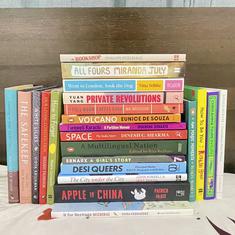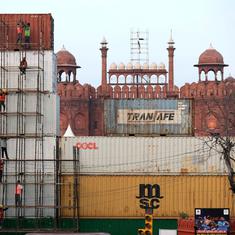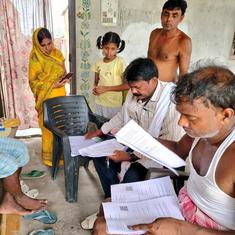Zohran Mamdani is all set to win the New York Democratic mayoral primary polls. The 33-year-old soared to popularity with his social media campaigns that were earnest and spoke directly to New Yorkers about what he intended to do if he were to be elected as the mayor. Mamdani has promised to control rents, make New York’s buses free, carry out energy reforms, and increase taxes on the city’s wealthiest persons. In addition to these, he has also been a vocal supporter of the Palestinian cause.
How might being the son of filmmaker Mira Nair and Ugandan academic Mahmood Mamdani have shaped his views? Many of us are already familiar with Mira Nair’s filmography. What about the mayoral candidate’s father’s works?
Born on April 23, 1946, Mahmood Mamdani is an Ugandan academic and author. He specialises in the study of African and international politics, colonialism and post‐colonialism, and the politics of knowledge production. Here are seven books by the scholar that explore the intersection between politics and culture, the history of civil war and genocide in Africa, the Cold War and the War on Terror, and the history and theory of human rights. (All information sourced from publishers.)
Neither Settler Nor Native: The Making and Unmaking of Permanent Minorities
In this genealogy of political modernity, Mamdani argues that the nation-state and the colonial state created each other. In case after case around the globe – from the New World to South Africa, Israel to Germany to Sudan – the colonial state and the nation-state have been mutually constructed through the politicisation of a religious or ethnic majority at the expense of an equally manufactured minority.
The model emerged in North America, where genocide and internment on reservations created both a permanent native underclass and the physical and ideological spaces in which new immigrant identities crystallised as a settler nation. In Europe, this template would be used by the Nazis to address the Jewish Question, and after the fall of the Third Reich, by the Allies to redraw the boundaries of Eastern Europe’s nation-states, cleansing them of their minorities. After Nuremberg, the template was used to preserve the idea of the Jews as a separate nation. By establishing Israel through the minoritisation of Palestinian Arabs, Zionist settlers followed the North American example. The result has been another cycle of violence.
Neither Settler nor Native offers a vision for arresting this historical process. Mamdani rejects the “criminal” solution attempted at Nuremberg, which held individual perpetrators responsible without questioning Nazism as a political project and thus the violence of the nation-state itself. Instead, political violence demands political solutions: not criminal justice for perpetrators but a rethinking of the political community for all survivors – victims, perpetrators, bystanders, beneficiaries – based on common residence and the commitment to build a common future without the permanent political identities of settler and native. Mamdani points to the anti-apartheid struggle in South Africa as an unfinished project, seeking a state without a nation.

When Victims Become Killers: Colonialism, Nativism, and the Genocide in Rwanda
“When we captured Kigali, we thought we would face criminals in the state; instead, we faced a criminal population.” So a political commissar in the Rwanda Patriotic Front reflected after the 1994 massacre of as many as one million Tutsis in Rwanda. Underlying his statement was the realisation that, though ordered by a minority of state functionaries, the slaughter was performed by hundreds of thousands of ordinary citizens, including judges, doctors, priests, and friends. Rejecting easy explanations of the Rwandan genocide as a mysterious evil force that was bizarrely unleashed, When Victims Become Killers situates the tragedy in its proper context. Mamdani coaxes to the surface the historical, geographical, and political forces that made it possible for so many Hutus to turn so brutally on their neighbors. In so doing, Mamdani usefully broadens understandings of citizenship and political identity in postcolonial Africa and provides a direction for preventing similar future tragedies.

Citizen and Subject: Contemporary Africa and the Legacy of Late Colonialism
In analysing the obstacles to democratisation in post-independence Africa, Mamdani offers a bold, insightful account of colonialism’s legacy – a bifurcated power that mediated racial domination through tribally organised local authorities, reproducing racial identity in citizens and ethnic identity in subjects. Many writers have understood colonial rule as either “direct” (French) or “indirect” (British), with a third variant – apartheid – as exceptional. This benign terminology, Mamdani shows, masks the fact that these were actually variants of a despotism. While direct rule denied rights to subjects on racial grounds, indirect rule incorporated them into a “customary” mode of rule, with state-appointed Native Authorities defining custom. By tapping authoritarian possibilities in culture, and by giving culture an authoritarian bent, indirect rule (decentralised despotism) set the pace for Africa; the French followed suit by changing from direct to indirect administration, while apartheid emerged relatively later. Apartheid, Mamdani shows, was actually the generic form of the colonial state in Africa.
Through case studies of rural (Uganda) and urban (South Africa) resistance movements, we learn how these institutional features fragment resistance and how states tend to play off reform in one sector against repression in the other. The result is a reassessment of colonial rule in Africa and its enduring aftereffects. Reforming a power that institutionally enforces tension between town and country, and between ethnicities, is the key challenge for anyone interested in democratic reform in Africa.

From Citizen to Refugee: Uganda Asians Come to Britain
Mamdani reflects on the lessons since the expulsion of Asians from Uganda. How come, he asks, over 90 per cent of residents of the country, brown or black, would not want to return to the days and years before the 1972 expulsion? The expulsion cannot just be understood as an event that occurred in 1972. He concludes, there is no one Asian legacy. There are several, and they are contradictory. Not all are legacies we would like to wipe out from our collective memories. Some we would like to build on; others we would like to reform. Uganda Asians are a poor fit as victims. In a land known for sporadic massacres, there were no massacres of Asians. When massacres happened, they were of “indigenous” people.
Mamdani begins to explore the theme of political identity – the colonial politicisation of racial identity and its reproduction after independence – which has been the concern of much of his subsequent work, notably in Citizen and Subject. This gripping story of the Asians’ last days in Uganda interweaves the stories of Mamdani’s friends and family with an examination of Uganda’s colonial history and the subsequent evolution of post-independence politics.

Good Muslim, Bad Muslim
Mamdani brings his expertise and insight to bear on a question many Americans have been asking since 9/11: how did this happen? Good Muslim, Bad Muslim is a provocative book that examines our understanding both of Islamist politics and the way America is perceived in the world today.

Saviours and Survivors: Darfur, Politics and the War on Terror
Saviours and Survivors is the first account of the Darfur crisis to consider recent events within the broad context of Sudan’s history, and to examine the efficacy of the world’s response to the ongoing violence. Illuminating the deeply rooted causes of the current conflict, Mamdani works from its colonial and Cold War origins to the war’s intensification from the 1990s to the present day. Examining how the conflict has drawn in national, regional, and global forces, Mamdani deconstructs the powerful Western lobby’s persistent calls for a military response dressed up as “humanitarian intervention”.

Define and Rule: Native as Political Identity
Define and Rule focuses on the turn in late 19th-century colonial statecraft when Britain abandoned the attempt to eradicate the difference between conqueror and conquered and introduced a new idea of governance, as the definition and management of difference. Mamdani explores how lines were drawn between settler and native as distinct political identities, and between natives according to tribe. Out of that colonial experience issued a modern language of pluralism and difference.
A mid-19th-century crisis of empire attracted the attention of British intellectuals and led to a reconception of the colonial mission and to reforms in India, British Malaya, and the Dutch East Indies. The new politics, inspired by Sir Henry Maine, established that natives were bound by geography and custom, rather than history and law, and made this the basis of administrative practice.
Maine’s theories were later translated into “native administration” in the African colonies. Mamdani takes the case of Sudan to demonstrate how colonial law established tribal identity as the basis for determining access to land and political power, and follows this law’s legacy to contemporary Darfur. He considers the intellectual and political dimensions of African movements toward decolonisation by focusing on two key figures: the Nigerian historian Yusuf Bala Usman, who argued for an alternative to colonial historiography, and Tanzania’s first president, Mwalimu Julius Nyerere, who realized that colonialism’s political logic was legal and administrative, not military, and could be dismantled through nonviolent reforms.











